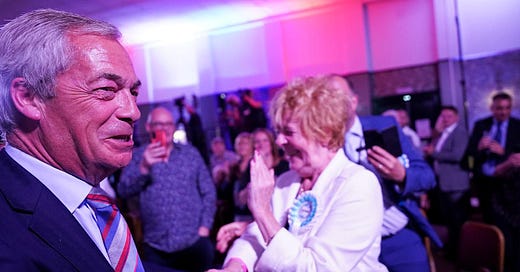Apparently last Thursday was "the first time in history" Liberal Democrats have beaten Labour and the Tories in local elections (for which information I thank them). But that of course isn't the result that has stood out for the commentariat. Nearly 700 new Reform councillors, a Reform by-election win, two Reform regional mayors, and ten Reform controll…
© 2025 David Aaronovitch
Substack is the home for great culture




